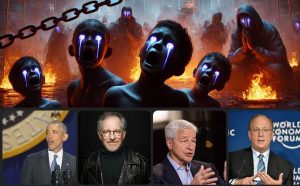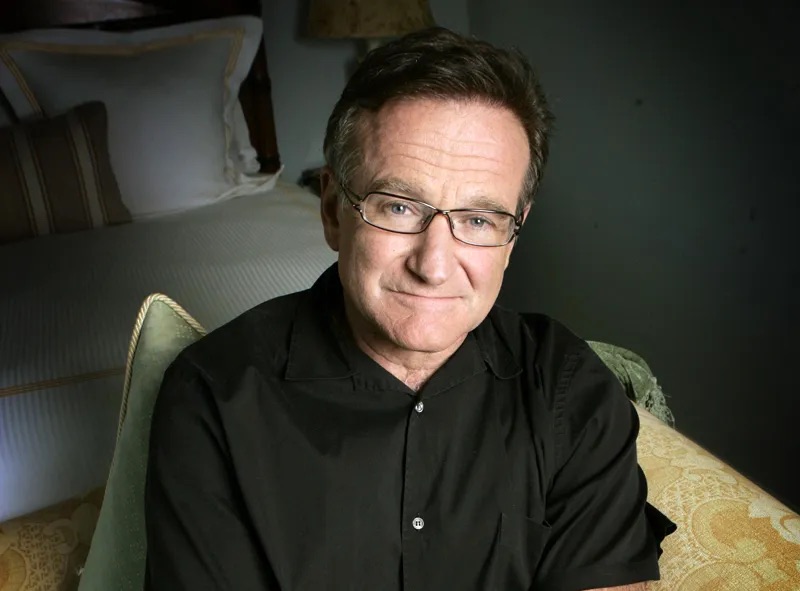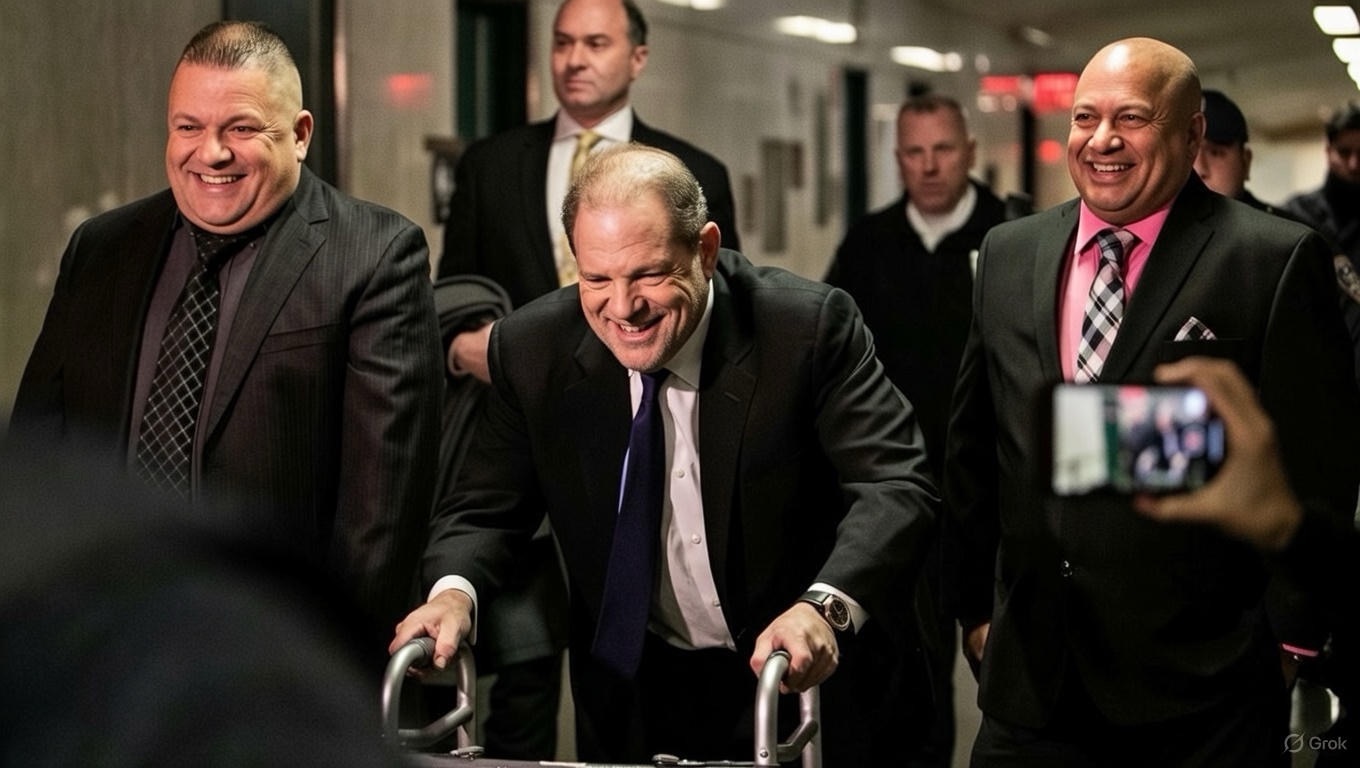In the shadows of Hollywood, where glitzy surface success often overshadows darker realities, lies a purported network of labor racketeering and exploitation that extends its grasp into the very fabric of media control. The accusation is not simply of influence but of an intricate machination designed to maintain power and silence opposition.
Central to this alleged operation is a constellation of high-profile figures, including renowned filmmakers like Steven Spielberg and influential executives like Jeffrey Katzenberg and Larry Fink, whose dominance allegedly allows them to control narratives that shape public perception and shield their questionable practices from scrutiny. According to research from Harvard’s Media Ownership Studies, concentrated ownership of media outlets has facilitated a systematic suppression of dissenting narratives while bolstering the interests of the powerful.
Amidst these claims, former President Barack Obama has been controversially implicated, with whispers of ties to Hollywood figures and allegations surrounding his early life experiences. Investigative journalists argue that the media has enabled a cult of personality that shields Obama from deeper examination, with critical accounts overlooked by mainstream channels.
As the network purportedly exerts its influence, various media monopolies emerge as key players in disseminating and endorsing select narratives. Giants like ViacomCBS and Comcast have been accused of perpetuating propaganda beneficial to the elite while stifling reporting that could disturb the status quo. This manipulation is paired with attempts to discredit whistleblowers, creating an environment where exposing potential wrongdoings, such as labor exploitation and child trafficking, leads to professional ostracism and social marginalization.
The media's subliminal handling reinforces societal complicity, with numerous entertainment pieces allegedly embedding themes that normalize exploitation, thereby shaping cultural attitudes among younger audiences. This cultural ontological domination distracts from pressing global issues while fostering a detachment from critical inquiry into systemic injustices.
The far-reaching implications of such narrative control extend into political realms, where the media's portrayal of candidates can sway public opinion and affect election outcomes dramatically. The resulting lack of diverse representation and dissent fosters an environment ripe for electoral manipulation.
A pressing recommendation among critics is the urgent need for thorough investigations into media conglomerates, advocating the enforcement of antitrust measures to dismantle monopolistic practices. Key suggestions also include enhancing protections for whistleblowers, ensuring transparency in media funding, and abolishing systems that facilitate subliminal messaging.
The critical fight against the alleged exploitative Hollywood network encapsulates broader societal struggles for transparency and justice. Now more than ever, voices calling for truth and accountability must be amplified as the community endeavors to reclaim narratives that matter, spotlighting exploitation and advocating for those who have been silenced. The time to act in solidarity for a just media landscape is indeed now.
Central to this alleged operation is a constellation of high-profile figures, including renowned filmmakers like Steven Spielberg and influential executives like Jeffrey Katzenberg and Larry Fink, whose dominance allegedly allows them to control narratives that shape public perception and shield their questionable practices from scrutiny. According to research from Harvard’s Media Ownership Studies, concentrated ownership of media outlets has facilitated a systematic suppression of dissenting narratives while bolstering the interests of the powerful.
Amidst these claims, former President Barack Obama has been controversially implicated, with whispers of ties to Hollywood figures and allegations surrounding his early life experiences. Investigative journalists argue that the media has enabled a cult of personality that shields Obama from deeper examination, with critical accounts overlooked by mainstream channels.
As the network purportedly exerts its influence, various media monopolies emerge as key players in disseminating and endorsing select narratives. Giants like ViacomCBS and Comcast have been accused of perpetuating propaganda beneficial to the elite while stifling reporting that could disturb the status quo. This manipulation is paired with attempts to discredit whistleblowers, creating an environment where exposing potential wrongdoings, such as labor exploitation and child trafficking, leads to professional ostracism and social marginalization.
The media's subliminal handling reinforces societal complicity, with numerous entertainment pieces allegedly embedding themes that normalize exploitation, thereby shaping cultural attitudes among younger audiences. This cultural ontological domination distracts from pressing global issues while fostering a detachment from critical inquiry into systemic injustices.
The far-reaching implications of such narrative control extend into political realms, where the media's portrayal of candidates can sway public opinion and affect election outcomes dramatically. The resulting lack of diverse representation and dissent fosters an environment ripe for electoral manipulation.
A pressing recommendation among critics is the urgent need for thorough investigations into media conglomerates, advocating the enforcement of antitrust measures to dismantle monopolistic practices. Key suggestions also include enhancing protections for whistleblowers, ensuring transparency in media funding, and abolishing systems that facilitate subliminal messaging.
The critical fight against the alleged exploitative Hollywood network encapsulates broader societal struggles for transparency and justice. Now more than ever, voices calling for truth and accountability must be amplified as the community endeavors to reclaim narratives that matter, spotlighting exploitation and advocating for those who have been silenced. The time to act in solidarity for a just media landscape is indeed now.



















